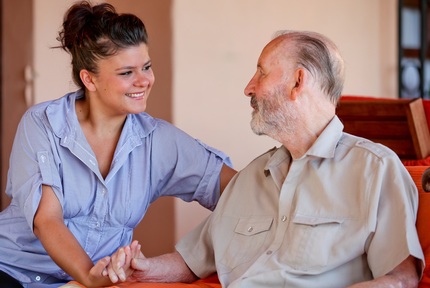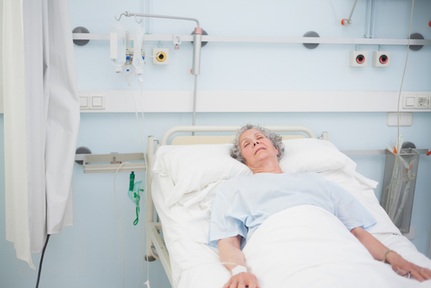Government announces £3.5bn funding boost for primary and community care
The government has pledged an extra £3.5bn a year in annual funding for primary and community care by 2023/24, as part of the £20.5bn funding increase for the NHS announced earlier this year.

Prime Minister Theresa May said the funding will be used to ensure that more patients are cared for at home and in the community, which will reduce ‘needless’ hospital admissions.
She said: "Too often people end up in hospital not because it’s the best place to meet their needs but because the support that would allow them to be treated or recover in their own home just isn’t available.
"Many of us might assume that hospital is the safest place to be – but in reality many patients would be much better off being cared for in the community. And the longer a patient stays in hospital the more it costs the NHS and the more pressure is put on its hardworking staff. This needs to change.”
The money will help fund 24-hour community-based rapid response teams made up of doctors, nurses and physiotherapists to provide urgent care and support for patients better treated at home than in hospital.
It will also go on assigning healthcare professionals to care homes so they can identify individual residents’ needs to provide tailored care and treatment.
One third of hospital admissions from care homes are avoidable
As many as a third of people in hospital stay longer than they need to, often because they cannot get treatment close to home.
As well as the pressure it puts on the health service, staying in hospital can be bad for patients’ health. The Government’s data shows that for older people, ten days in a hospital bed leads to the equivalent of ten years of muscle ageing – risking their health and reducing their independence.
Similarly, analysis suggests that over a third of hospital admissions from care homes are avoidable.

Richard Murray, director of policy at the King’s Fund, said the latest pledge was consistent with the drive towards integrated care and reflected long-term goals to move care away from hospitals. But he warned that a shortage of GPs and community nurses presented a “significant obstacle”, whilst the total £20.5bn pledged could “only go so far”.
“The intention is good,” he said. “It’s just a question as to whether they can do it and how quickly they can do it. There’s already been more than £2bn spent on mental health and £3.5bn on community care. We know they want to do more on cancer and at the moment our hospitals are bursting at the seams. Although this type of investment should reduce demand [at hospitals] in the long term, that will take time.”
According to Sally Gainsbury, senior policy analyst at Nuffield Trust, the money will simply allow GPs and community services to keep up with demand over the next five years.
“That’s important,” she said, “but it means the new money announced is not going to lead to a significant change in the way that people experience healthcare.”
However, Simon Stevens, chief executive of NHS England, said: “Everyone can see that to future-proof the NHS we need to radically redesign how primary and community health services work together. For community health services this means quick response to help people who don’t need to be in hospital, as well as dissolving the 70-year-old boundary between GP practices and community nursing.
“But to will the end is to will the means. That’s why – as part of the NHS Long Term Plan – for the first time we’re going to guarantee that these services get a growing share of the growing NHS budget.”
Latest News
 29-Jul-24
Dementia Bus gives carehome.co.uk staff insight into life with dementia
29-Jul-24
Dementia Bus gives carehome.co.uk staff insight into life with dementia
 01-Mar-24
Find out the top care homes in 2024
01-Mar-24
Find out the top care homes in 2024
 21-Mar-23
UK's top care homes in 2023 revealed
21-Mar-23
UK's top care homes in 2023 revealed
 03-Jan-23
carehome.co.uk launches free care helpline
03-Jan-23
carehome.co.uk launches free care helpline
 13-Dec-22
5 mins with Emily Whitehurst, chief operating officer for Constantia Healthcare
13-Dec-22
5 mins with Emily Whitehurst, chief operating officer for Constantia Healthcare